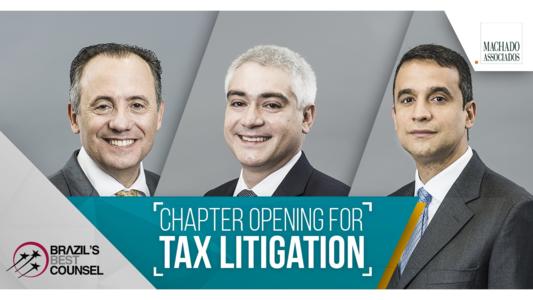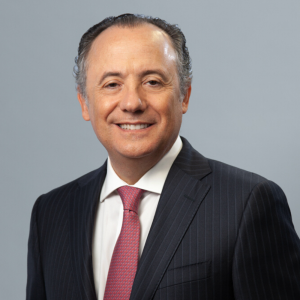Brazil’s Best Counsel – Chapter Opening: Tax Litigation

Brazil is a developing country with a potential consumer market of around 210 million people. From basic sanitation to tech goods, companies have a broad range of investment alternatives at hand.
Its complex tax system, however, demands well-pondered strategies from companies seeking to enter the market and a resilient approach to tax litigation. With precautions taken, a fair return on investment might be expected.
The Union, States, Municipalities and the Federal District have tax powers and tax-related discrepancies are addressed by the issuance of tax assessment notices. Administrative proceedings begin with the filing of defences, which are then usually judged by two or three administrative levels of the revenue services.
If a defence is unsuccessful, taxpayers can file suits to challenge tax collection and authorities may, in turn, file tax executions. Revenue services do not have the power to seize taxpayers’ goods during administrative proceedings, but they can trace taxpayers’ assets and, in some cases, request an injunction to block them.
Although tax inspections are routine for companies, it is not uncommon for tax assessment notices to be issued without respecting formalities and with errors in the ascertainment of taxes. Thus, whenever possible, it is advisable to go through administrative proceedings, pleading the recognition of nullities and mistakes. Furthermore, it is a good opportunity to discuss complex matters with the revenue services – which in many cases have seasoned professionals amongst their staff – without having to guarantee the debts.
Moreover, to discuss collection related to a lawsuit, taxpayers can request an injunction blocking collection. If not granted and the plaintiff needs tax clearance certificates, it can guarantee the debt by means of a court deposit. If a tax execution is filed, the filing of a motion to stay execution demands the previous offering of guarantees established by law.
Lawsuits are usually lengthy in Brazil. According to official data, at the end of 2017 there were 80.1 million lawsuits pending judgement, 39% of which are tax executions. Authorities frequently change their interpretation of supposedly settled tax issues, increasing the volume of litigation.
Before the judiciary, taxpayers may file lawsuits challenging liabilities and recover unduly paid taxes. It is also possible to request a writ of mandamus to avoid or remedy illegal acts by the tax authorities and to file motions to stay executions.
The basic course of a lawsuit is the judgment by a single judge; the filing of appeals (including a mandatory review for certain tax-related decisions) and judgement by a Court of Appeals. Finally, appeals to the Superior Court of Justice (concerning legality) or to the Supreme Court (“STF”, regarding constitutionality) are possible.
Injunctions may be granted to avoid irreparable damage and most of the decisions may be challenged by a motion to clarify and interlocutory appeals. Except for the mandamus, defeat fees are applicable and the statute of limitations is generally of five years.
In 2018/19, the STF might render significant decisions related to themes such as software taxation and the levy of ISS (Service Tax) on franchising. Decisions on the so-called tax war between States regarding unilaterally-granted ICMS tax benefits and limits to tax fines are also expected.
The effects of the decision concerning the exclusion of ICMS from the Social Contributions on Revenues (PIS/COFINS) taxable basis will probably be settled (for past and future or only for future instances). Such discussions may be extended to the inclusion of ISS to the PIS/ COFINS taxable basis.
It is worth highlighting that tax litigation in Brazil is costly, another reason why companies need strategy- driven work. In a system marked by a high degree of legal uncertainty, tax lawsuits are often a long-term investment. Hence, litigation in Brazil must be safe and make sense to a clients’ business.
ABOUT THE AUTHORS:
As a partner, Júlio de Oliveira has worked on major direct and indirect tax proceedings and provided strategic consultancy to large domestic and international companies. He is a member of committees and associations seeking to improve the Brazilian tax system and was previously a judge of the Administrative Tax Court of the State of São Paulo.
E-mail: joliveira@machadoassociados.com.br Phone: +55 11 3819-4855
Partner Paulo Rogério Ribeiro actively represents clients before the judicial and administrative spheres in the full range of tax matters. Highly active in defenses against tax assessments and the filing of lawsuits challenging tax liabilities or aiming to recover unduly paid taxes.
E-mail: pribeiro@machadoassociados.com.br Phone: +55 11 3819-4855
Senior associate in the firm’s Indirect Tax practice, Rogério Gaspari Coelho graduated in law from PUC-SP and holds an MBA in International Relations from FGV-SP. With over 15 years of experience in indirect taxes and tax litigation, he frequently advises Brazilian and multinational companies on tax-focused business structuring.
E-mail: rcoelho@machadoassociados.com.br Phone: +55 11 3819-4855
Matéria original: https://www.leadersleague.com/en/news/brazil-s-best-counsel-chapter-opening-tax-litigation


